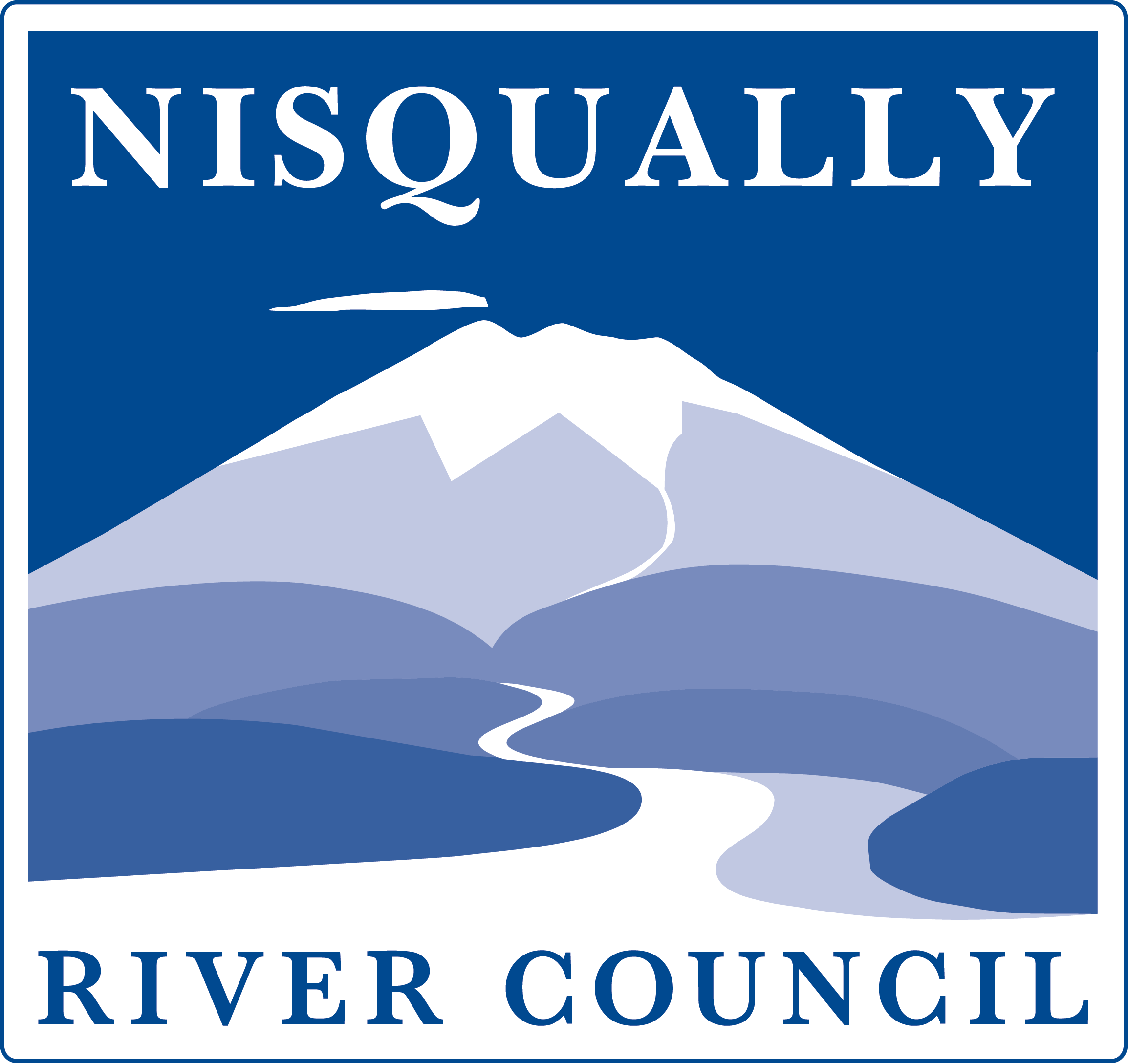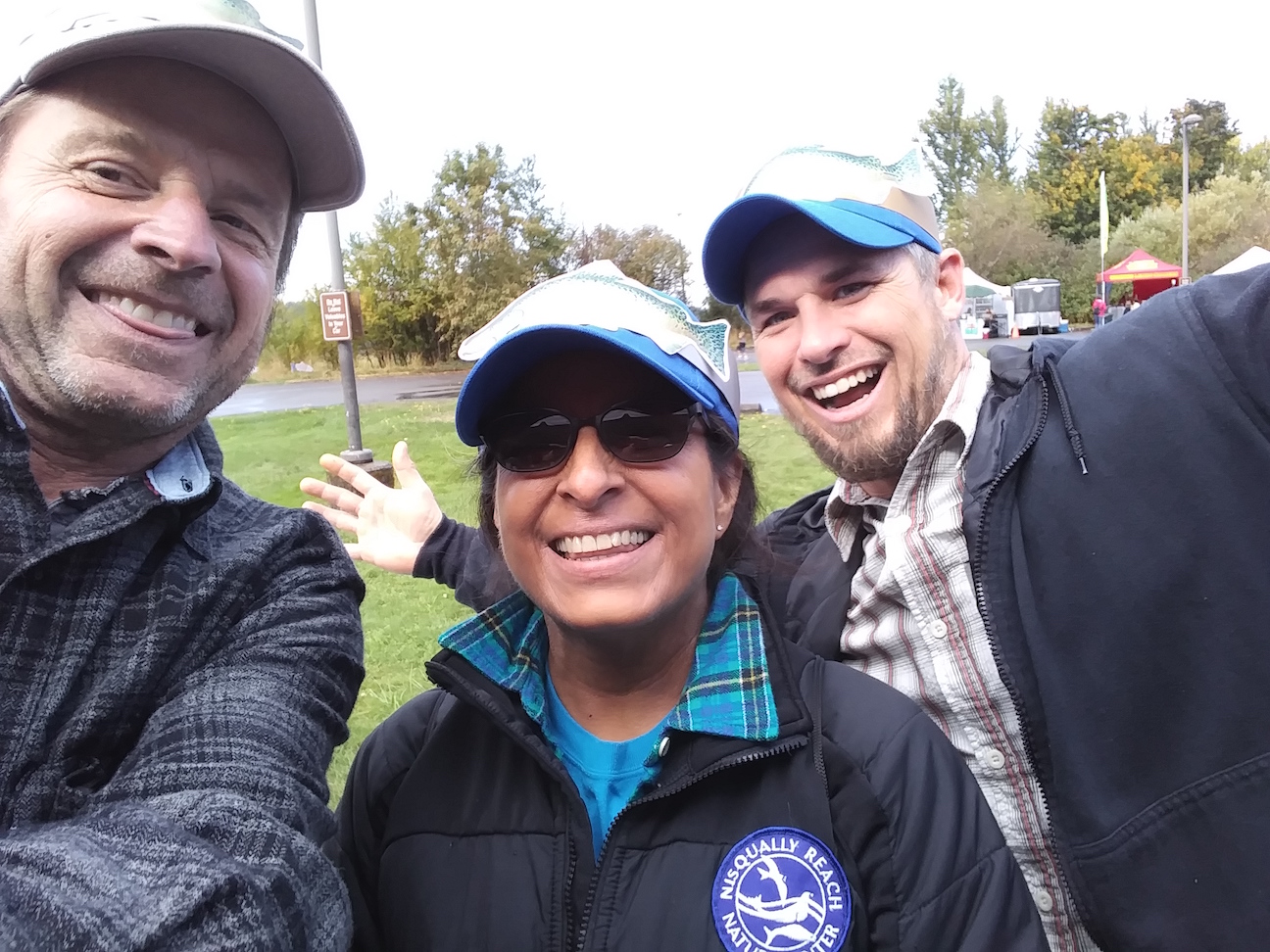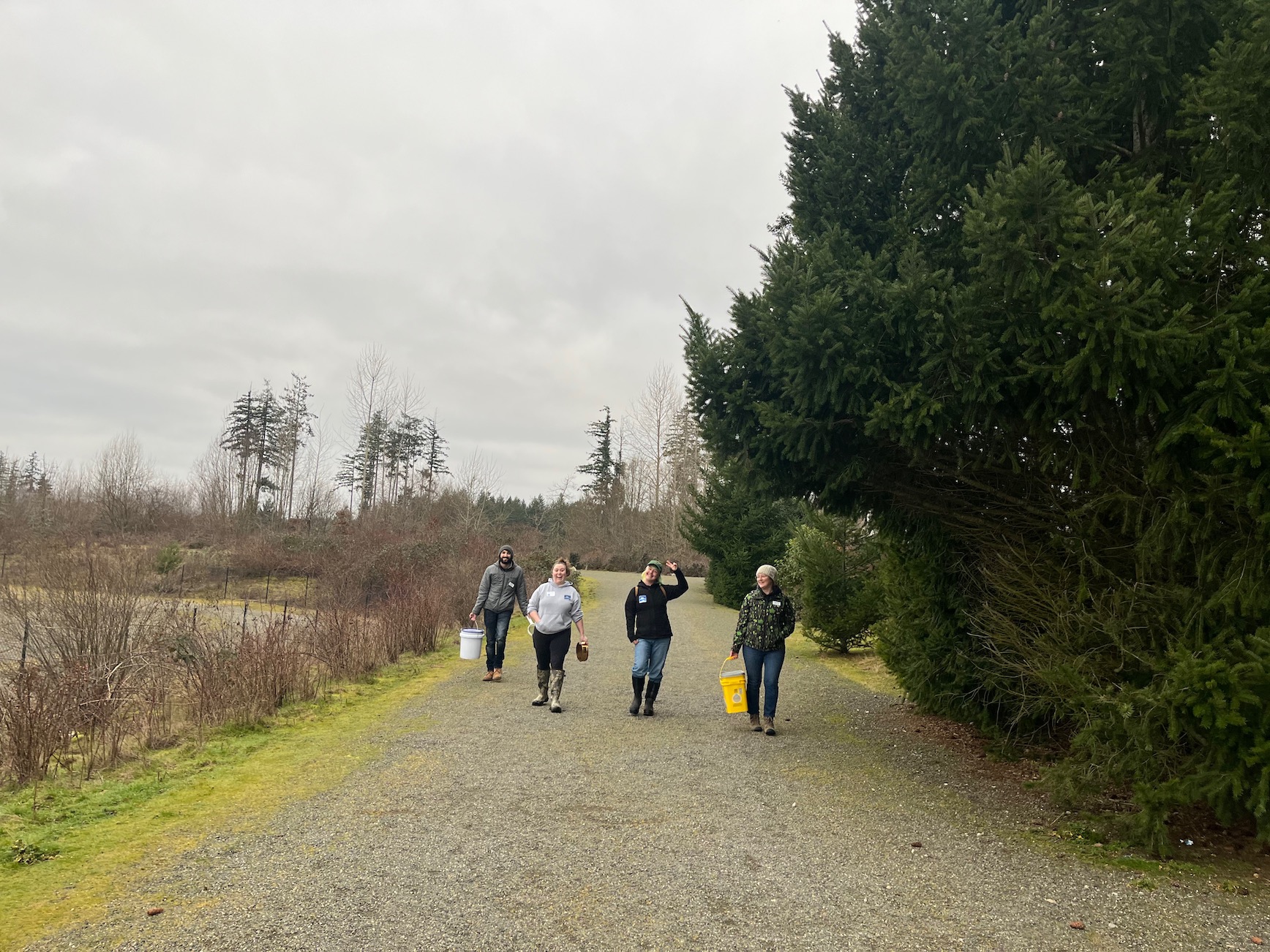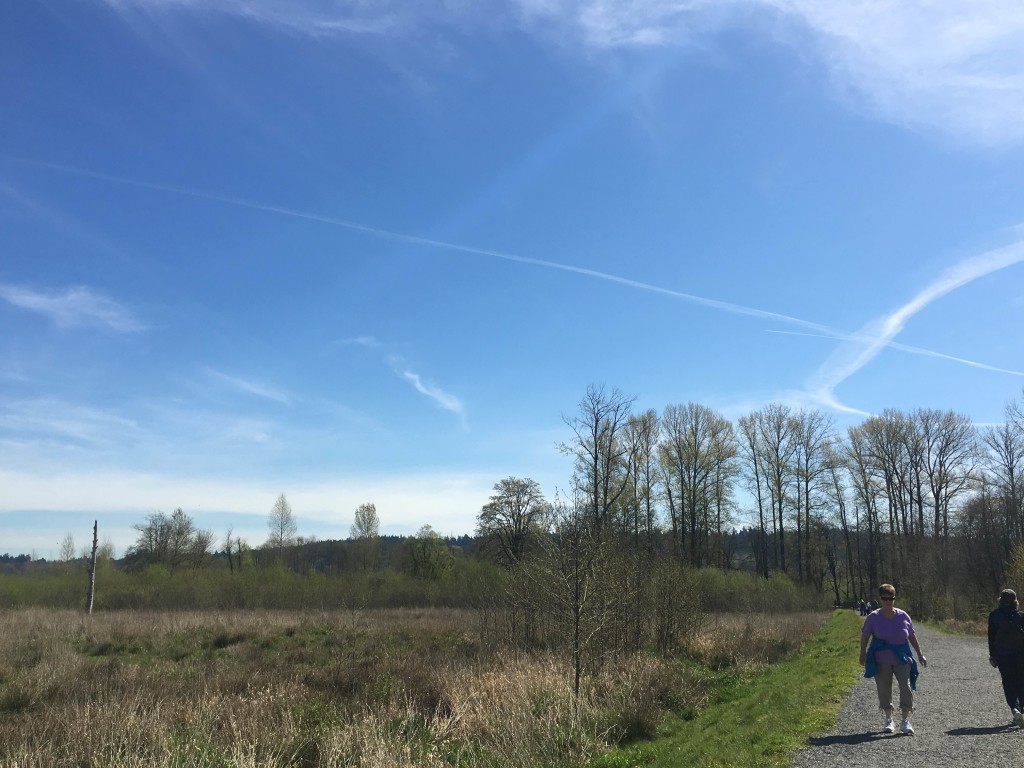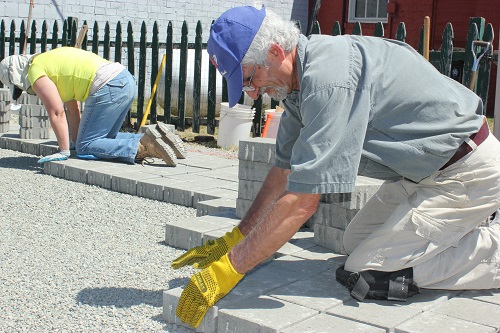
Last week, dozens of volunteers descended on Eatonville to build three rain gardens and a fish-friendly parking lot. The volunteers toiled under the hot sun for three days, helping Eatonville stay one of the most salmon-friendly small towns in the United States.
Native Plant Salvage Foundation, a non-profit arm of WSU Extension that teaches people ways to protect water resources through actions on their own home or school sites, has been working with Eatonville High School students and two teacher advisors since April 2013. NPSF staff Erica Guttman and James O’Keeffe trained eight core students in water resources principles, including the problems of polluted stormwater runoff and solutions through low impact development or green stormwater projects. Students and NPSF staff then worked with local businesses and the school district administration to plan, design, and build six LID projects.
Project partners include Eatonville High School, Cruiser Cafe, Kirk’s Pharmacy, DL Anderson Insurance, and Pet Pruners Grooming & Supplies. Mutual Materials provided free pavers and training for the new permeable parking area behind Pet Pruners.
The Nisqually River Council and the Nisqually Indian Tribe are funding the project:
“If we don’t do something, growth in Eatonville will have a massive detrimental impact on salmon and water quality,” said David Troutt, natural resources director for the Nisqually Indian Tribe. “But, if we can handle the growth the right way, we can have salmon and a healthy community. Rain gardens are an important tool in making that happen.”
Dozens of rain gardens have already been built throughout Eatonville, giving the city the distinction of the highest density of rain gardens of any community in the country.
Rain gardens are landscape amenities designed to capture and absorb polluted runoff from impervious surfaces, like roofs or parking lots. They reduce runoff by allowing stormwater to soak into the ground instead of flowing into storm drains causing pollution, flooding, and diminished groundwater.
Still to come in Eatonville are interpretive signs at each site that explain how the rain gardens and permeable pavement treat and manage polluted runoff.
